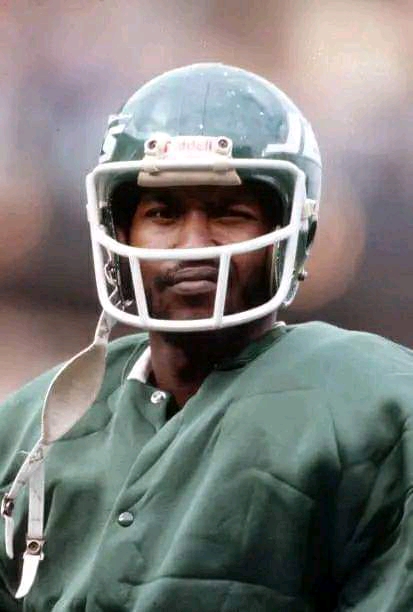The Life and Career of Wesley Walker
Early Life and Education
Wesley Darcel Walker was born on May 26, 1955, in San Bernardino, California. Growing up with a natural talent for sports, Walker excelled in athletics from a young age. Despite being legally blind in one eye, his speed and ability to track the football were remarkable. Walker attended the University of California, Berkeley, where he played college football for the California Golden Bears. His outstanding performances as a wide receiver caught the attention of NFL scouts.
NFL Career with the New York Jets (1977–1989)
Walker was selected by the New York Jets in the second round of the 1977 NFL Draft. His rookie season immediately showcased his explosive speed and deep-threat capability. Throughout his career, Walker became known for his ability to make game-changing plays, often stretching defenses with his elite speed. His best season came in 1978 when he led the league in receiving yards (1,169) and touchdowns (8), solidifying his reputation as one of the premier deep threats in the league.
Despite his visual impairment, Walker’s instincts and athleticism allowed him to excel, becoming a two-time Pro Bowl selection in 1978 and 1982. His connection with Jets quarterbacks like Richard Todd and Ken O’Brien resulted in many memorable moments. Walker was part of the iconic ‘Air Coryell’ era, where deep passing was a major offensive strategy.
Memorable Moments
One of Walker’s most unforgettable performances came in a game against the Miami Dolphins in 1986, where he caught two long touchdown passes and accumulated over 194 receiving yards, leading the Jets to an epic overtime victory. His contributions to the team made him a fan favorite and a respected figure among his peers.
Legacy and Post-Football Life
Walker retired after the 1989 season, finishing his career with 8,306 receiving yards, 71 touchdowns, and an average of 19.0 yards per reception—one of the highest in NFL history. His deep-threat ability and resilience despite visual impairment remain an inspiration. After his football career, Walker became involved in community service and motivational speaking, often highlighting the importance of perseverance and overcoming adversity.
Conclusion
Wesley Walker’s legacy in the NFL is marked by his incredible speed, remarkable playmaking ability, and his triumph over physical challenges. His story is a testament to determination and passion, inspiring both fans and athletes alike.
